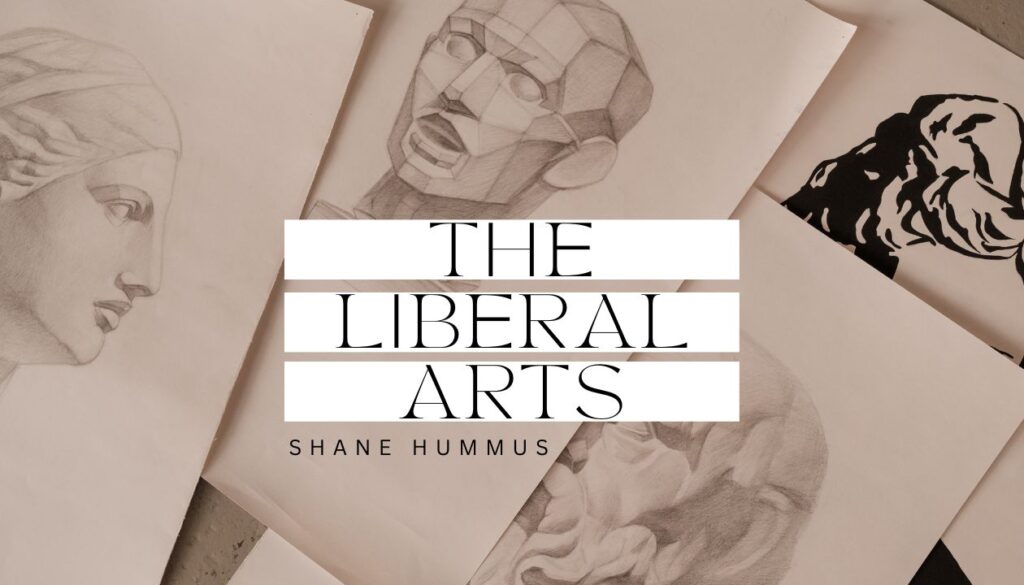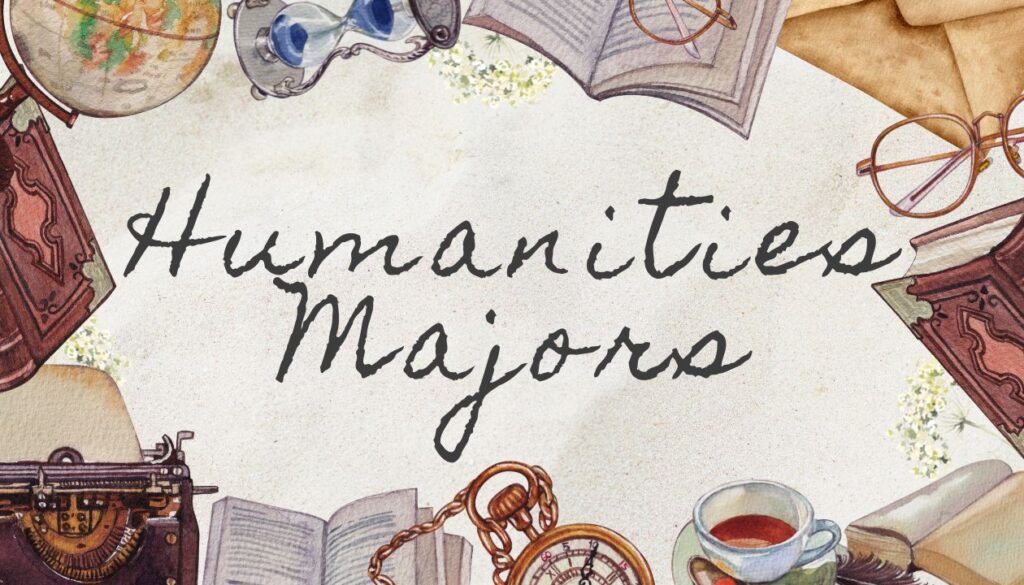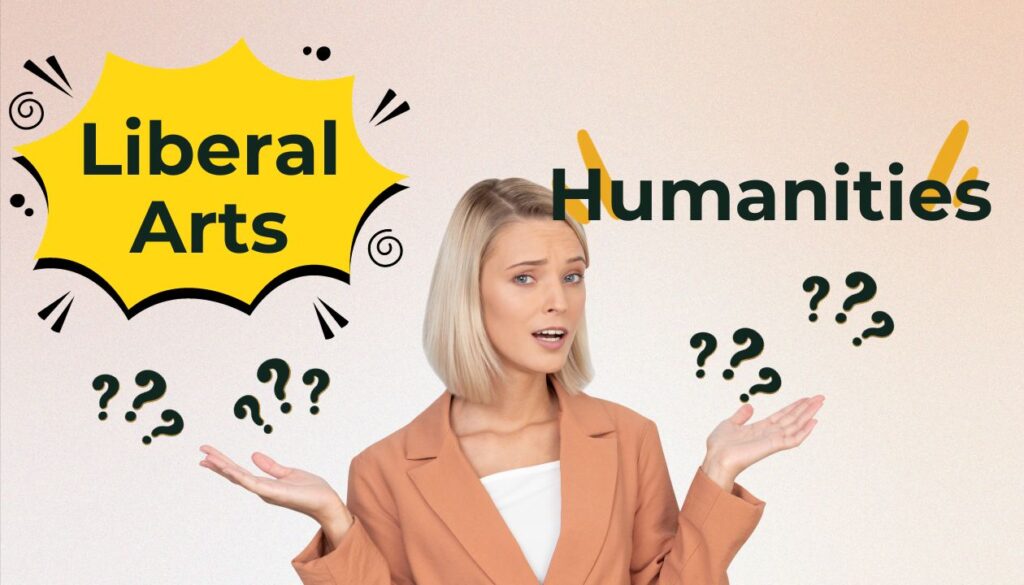The Liberal Arts, Humanities, and Arts: The Value of Studying Them in College
The decision to pursue a college major is an important one that can shape your career opportunities and interests for life. Liberal arts, humanities, and arts majors offer a broad education in diverse subjects like literature, philosophy, history, languages, and fine arts. These majors teach critical thinking, communication, creativity, and other transferable skills valued by employers.
While these majors are sometimes criticized as impractical, they open doors to many professions and provide a well-rounded education. This article explores the nature of liberal arts, humanities, and arts majors, online options, career paths, salaries, and skills gained to help you decide if these fields are right for you.
Liberal arts education dates back to ancient Greece and Rome and focuses on subjects like logic, rhetoric, grammar, arithmetic, geometry, astronomy, and music. The liberal arts provide a general knowledge base across disciplines, emphasizing critical analysis over vocational skills. Colleges that focused on this field grew popular in the United States in the 19th century.
Today, many universities offer liberal arts college programs and degrees. The humanities specifically focus on human culture, using methods like philosophy, history, literature, and linguistics. The arts encompass visual and performing arts like painting, sculpture, photography, design, theater, dance, and music. Liberal arts, humanities, and arts programs share a focus on human expression, thought, language, and values.

What are Liberal Arts?
The term “liberal arts” refers to academic subjects like literature, philosophy, social sciences, languages, and mathematics. Liberal arts education aims to provide broad knowledge and intellectual skills rather than narrow vocational training.
The liberal arts date back to the Western university tradition established in medieval Europe. There, students first learned the seven liberal arts, divided into the trivium (grammar, rhetoric, and logic) and the quadrivium (arithmetic, astronomy, geometry, and music).
Today’s curricula have evolved beyond these original seven liberal arts. Modern liberal arts programs provide a general, interdisciplinary education. Students take courses across diverse subjects to gain foundational knowledge in the sciences, humanities, and arts. This prepares them to think critically, reason logically, communicate clearly, and appreciate diverse perspectives. The different majors in this field study philosophy, history, literature, creative arts, sociology, anthropology, political science, economics, languages, mathematics, and more. Coursework emphasizes analyzing great works, ideas, and discoveries shaping human civilization.
Liberal arts programs aim to produce well-rounded individuals exposed to diverse subjects and ways of thinking. This broad education cultivates intellectual curiosity and flexibility that are valuable in many careers. While liberal arts majors gain little technical training for specific jobs, they excel in transferable skills. These include communication, critical analysis, problem solving, research, and creativity. With these adaptive abilities, liberal arts graduates can thrive in our rapidly changing job market.

What are the Humanities?
The humanities specifically focus on human culture and self-expression using disciplines like history, philosophy, religion, literature, and linguistics. These fields explore how people process and document human experience. Unlike the sciences, humanities subjects are not methodologically or mathematically rigorous in their analysis of the physical world. Instead, they use critical theories and contextual analysis related to human values, beliefs, and history.
Common humanities divisions include:
- History
- Philosophy
- Religion/Theology
- Literature
- Linguistics/Languages
- Classics
- Art History/Theory
- Anthropology
- Archaeology
- Jurisprudence
- Ethics
Humanities majors choose a focus like comparative literature or medieval history but take courses across disciplines to gain a broad understanding of human culture. Studying the humanities improves communication skills, cultural awareness, analytical thinking, and creativity. While teaching a few directly applicable job skills, humanities majors gain adaptable abilities to work in many fields.
Liberal Arts Degrees
Liberal arts programs are available at many colleges, both colleges devoted entirely to a broad education and larger universities with a range of degree options. Liberal arts degrees aim to provide a well-rounded interdisciplinary education and general skills. Common liberal arts degrees include:
- Associate of Arts (AA): Two-year programs granting an AA focus on general education requirements like composition, math, humanities, social sciences, and natural sciences. Coursework provides broad foundational knowledge to prepare students for entry-level roles or transfer to a four-year program.
- Bachelor of Arts (BA): Four-year programs awarding a BA in liberal arts provide undergraduate education in humanities, sciences, and creative arts. Students gain writing, critical thinking, cultural awareness, and basic knowledge across disciplines. Libraries and computer technologies are commonly incorporated into research.
- Bachelor of Science (BS): Some programs award a BS with more required credits in mathematics and natural sciences compared to a BA. Coursework still provides broad general education.
- Master of Arts (MA): Graduate MA programs allow further specialization in one field while requiring interdisciplinary study. They advance research and analytical skills for careers or doctoral study.
Liberal arts curricula develop competencies in communication, analytical reasoning, problem solving, research, and creativity applicable across fields. Majors take elective courses to explore areas of personal interest.

Humanities Majors
Humanities subjects can be studied individually or combined in interdisciplinary majors like:
History
History is the study of past human affairs using primary sources, artifacts, archaeology, and other methods to analyze the causes and impacts of events. Historians examine patterns in politics, society, economics, culture, and ideas across eras and regions. Understanding history provides context for current issues and can reveal lessons for the future.
Philosophy
Philosophy is a broad examination of fundamental questions about knowledge, existence, reason, morality, and human nature. Philosophers use logic, conceptual analysis, and thought experiments to address topics like epistemology, metaphysics, aesthetics, political philosophy, and ethics. The skills developed in philosophy can clarify complex issues in any domain.
Literature
Majors in the literature field focus on the analysis of important written and oral texts like novels, poetry, plays, and speeches. Literature explores elements of form, style, imagery, characterization, theme, and artistic value. Understanding literature provides insight into different cultures and the human condition. Studying literature builds communication skills, creativity, and an appreciation for diverse perspectives.
Linguistics
This is the scientific study of natural human language, including phonetics, phonology, morphology, syntax, semantics, and pragmatics. Linguistics examines how languages develop, change, and function in communication and society. This aids communication, language learning, translation, and resolving cross-cultural misunderstandings.
Art History
Art history examines major works, styles, techniques, and movements in the visual arts over time. Art history provides insight into cultures, historical contexts, and artistic processes. It builds visual literacy, creativity, and awareness of the influential role of art in societies. Studying art theory and interpretation methods furthers critical thinking skills.
Religion
Religion is the academic study of religious faiths, practices, experiences, texts, and institutions. It examines the influences of religions on society, cultures, ethics, politics, and human psychology. Understanding diverse religions builds cultural literacy and appreciation for different worldviews. Studying religion can illuminate current issues and foster interfaith dialogue.
Classics
Classics majors focus on the languages, history, philosophy, art, and literature of ancient Greek and Roman civilizations. Classics provides insight into the origins of Western culture and parallels to modern issues. Studying ancient languages builds valuable linguistic skills. Analysis of classical texts and ideas furthers critical thinking abilities.
Anthropology
Anthropology is the holistic study of human societies and cultures, including archaeology, linguistics, and ethnography. Anthropologists examine social structures, political systems, economies, technologies, gender roles, languages, religions, arts, and belief systems within cultures. Cross-cultural analysis promotes cultural relativism and sheds light on current social issues.
Archaeology
This field is the study of human cultures through physical artifacts, archaeological sites, and material remains. Archaeologists work to reconstruct and interpret past human behavior, cultures, and activities. Archaeological techniques reveal insights into societies otherwise lost to history. This expands knowledge of human origins, migrations, technologies, and customs.
Jurisprudence
Jurisprudence is the study of the theoretical philosophy of law, including its principles, nature, functions, and development over time. Jurisprudence examines concepts like justice, rights, property, sovereignty, and morality in relation to laws and legal systems. These issues have implications for politics, ethics, and society.
Ethics
Ethics, a major branch of philosophy, explores concepts of right and wrong, justice and injustice, and good and evil. Examines foundational principles and theoretical frameworks for evaluating moral values, duties, and behavior. Studies real-world ethical issues in domains like business, medicine, politics, and technology. Develops critical thinking and analytical skills for ethical decision-making. Promotes consideration of diverse moral perspectives.
Ethics provides vital tools for clarifying values, navigating complex dilemmas, and living an examined life of moral integrity. This field sheds light on debates over social justice, environmental policies, bioethics, and human rights. Understanding ethics is crucial for thoughtful participation in civil society.
Humanities coursework improves communication abilities, creativity, analytical rigor, cultural perspectives, and moral reasoning—various skills for many fields.

Online Liberal Arts and Humanities
Online education has expanded access to liberal arts and humanities majors. Many accredited colleges now offer online bachelor’s and master’s degrees in liberal studies and humanities subjects. Benefits of online liberal arts programs include:
- Accessibility: Online courses remove geographic barriers to top programs.
- Affordability: Online programs are often cheaper than on-campus.
- Flexibility: Students learn on their own schedule and pace.
- Personalization: Students can integrate minors and electives around interests.
- Interactive Learning: Discussions, group projects, and assignments engage students.
- Career Focus: Some programs incorporate career development or concentrations.
Online platforms allow interactive discussions, readings, lectures, and assignments. Some programs are self-paced, while others follow a cohort schedule. Students access course materials, submit work, discuss topics, and meet instructors online. Proctored exams may be required on-site. Research and writing center support is typically available.
Make sure online humanities and liberal arts programs hold appropriate accreditation. When thoughtfully designed, online liberal arts degrees provide equivalent rigor and value to on-campus programs. Advanced research skills and cultural perspectives are still developed through diverse online interdisciplinary studies.
Significance of Liberal Arts Majors
While a liberal arts major provides no direct professional training, the generalized skills gained are valued in many fields. Benefits of a liberal arts education include:
- Critical Analysis: Evaluate ideas and information logically.
- Complex Problem Solving: Apply creative approaches.
- Research Skills: Finding and interpreting information effectively.
- Communication: Articulate ideas clearly in speech and writing.
- Cultural Awareness: Appreciate diverse perspectives.
- Ethical Reasoning: Understand philosophical foundations behind morals and choices.
- Adaptability: Transfer skills to evolving workplace needs.
Liberal arts graduates bring human understanding and mental flexibility to the workplace. They have honed their capacities to think critically, locate and assess information, communicate clearly, resolve complex issues, and never stop learning. The liberal arts provide a broad intellectual foundation to interpret and thrive in our complex world.
Significance of Arts Majors
While arts majors also avoid direct professional training, they build creative capabilities transferable to many fields.
- Creativity: Generate innovative approaches and solutions.
- Design Skills: Visually communicate ideas.
- Cultural Awareness: Understand diverse artistic perspectives.
- Self-expression: Convey emotions, experiences, and ideas.
- Collaboration: Cooperate creatively as part of artistic teams.
- Persistence: Dedicate extensive time and critique to refine skills.
- Storytelling: Craft engaging narratives and messages.
- Spatial Intelligence: Understand visual relationships.
Arts students gain resilience by constantly receiving feedback to perfect their craft. Studying the arts cultivates right-brain creative abilities neglected in many fields yet vital for innovation.
Significance of Humanities Majors
Humanities majors build historical perspective and understanding of diverse cultures.
- Global Citizenship: Relate to shared human values and struggles.
- Moral Reasoning: Reflect on the ethical implications of behaviors and policies.
- Cross-cultural Dialogue: Communicate across differences.
- Critical Analysis: Evaluate ideas, events, and texts in context.
- Creativity: Synthesize broad knowledge into original perspectives.
- Empathy: Understand situational factors shaping beliefs and choices.
- Cognitive Flexibility: Appreciate complexity and ambiguity.
Humanities graduates bring nuanced cultural perspectives to policymaking, business, law, education, journalism, and government. Their studies reveal how similar and different we all are.

Liberal Arts vs. Humanities
The humanities are subjects focused on human culture, expression, and values explored through disciplines like history, philosophy, literature, and classics. The liberal arts encompass these humanities as well as the natural sciences, social sciences, and creative arts. The liberal arts provide comprehensive undergraduate knowledge across academic divisions. The humanities concentrate on fields related to human civilization and self-expression without covering the natural sciences.
What are the Overlaps Between Liberal Arts and Humanities?
Overlaps between the liberal arts and humanities include:
- Literature, linguistics, and languages
- History
- Philosophy
- Religious studies
- Art history and theory
- Anthropology
Liberal arts programs survey the whole domain of academic knowledge to foster intellectual flexibility. The humanities focus more narrowly on disciplines illuminating human thought, culture, and values. Both provide broad-based education in the humanities.
Liberal Arts vs. Arts
The liberal arts include study across the humanities, sciences, mathematics, and fine arts like visual art, theater, dance, and music. Arts majors concentrate specifically on practicing a particular fine art, like sculpture or creative writing. Liberal arts programs aim for a well-rounded general education, while arts degrees focus on mastering a creative craft.
Overlaps between the liberal arts and the arts include:
Overlaps Between Liberal Arts and Arts
- Art history and theory
- Basic artistic practice through electives
- Interdisciplinary connections
Arts majors dive deeper into a single medium through extensive studio work, portfolio development, and critiques. Creative expression is the central focus. Liberal arts programs sample artistic practice as part of a broad curriculum. Arts degrees and liberal arts complement one another in fostering creativity, cultural awareness, and communication.
Here’s a video that talks about the Liberal Arts Degrees Tier List
Top Jobs for Liberal Arts, Humanities, and Arts Degrees
While liberal arts, humanities, and arts (LHA) majors offer no direct career training, employers value their versatile skills. Adaptability is increasingly vital with rapidly changing workplace demands. LHA graduates’ talents for communication, analysis, problem solving, research, and creativity make them assets in diverse roles.
Here are some promising careers for LHA majors:
Managers
Managers are tasked with applying leadership abilities gained from teamwork as well as interpersonal insights. Understanding group dynamics and negotiating conflicting interests help managers succeed. Strong communicators thrive in directing organizations.
Marketers
Marketers use research skills from the liberal arts to identify consumer insights and trends. Writing and creative abilities help craft engaging campaigns and content. Analytical and communication talents drive marketing.
Public Relations Specialists
As a public relations specialist, you will harness research, writing, and cultural literacy from liberal arts programs. They manage organizational messaging and events. Communication and organizational skills are crucial.
Sales Representatives
Sales representatives rely on interpersonal rapport, needs assessment, and persuasive abilities. Sociological insights help understand client perspectives and make pitches. The liberal arts build these social skills.
Human Resources
Among the most popular paths for graduates is to become a part of the human resources workforce. As one, you will draw on the relationship abilities, ethical grounding, and conflict resolution skills developed in the liberal arts. HR coordinates essential personnel functions.
Customer Service
Customer service specialists benefit from the patience, empathy, and communication strengths built through the liberal arts. Addressing complaints and answering questions require interpersonal tact.
Grant Writers
Grant writers leverage liberal arts research expertise to identify funding opportunities. Strong writing conveys organizational needs persuasively to secure grants.
Technical Writers
As a techincal writer, you will use research skills from the liberal arts to gather information and explain complex concepts clearly. Conveying technical material for general audiences is a strength.
High-Paying Careers for Liberal Arts, Humanities, and Arts Graduates
While LHA majors focus on intellectual enrichment over vocational skills, graduates thrive in many high-paying careers. Flexible thinking, communication talents, cultural insights, and a work ethic make liberal arts majors assets. Here are some lucrative roles open to LHA graduates:
Sales Managers
Sales managers oversee multimillion-dollar sales teams in industries from manufacturing to insurance. Strong communicators who understand psychology and interpersonal dynamics excel. The average salary for sales managers is $107,000.

Political Scientists
As political scientists, graduates study political systems and public policy. They use research skills gained from liberal arts and humanities coursework to collect and analyze data. Political scientists earn an average of $120,000 per year.

Computer Programmers
Computer programmers use logic and language skills from humanities backgrounds to write code-powering software. The average programmer salary is $80,000.

Technical Writers
use research abilities and communication strengths from LHA studies to prepare manuals, guides, and process documents. They explain complex information clearly for users. Technical writers make an average of $76,000.

Paralegals
apply analytical and communication talents from liberal arts majors to conduct legal research and prepare documents. Strong writers and logical thinkers thrive. The average paralegal salary is $56,000.

Copywriters
utilize creative writing techniques from English and arts backgrounds to produce compelling marketing materials. Their average income is $70,000.

Grant writers
employ humanities research expertise to identify funding opportunities and persuasively convey project goals. The average salary for grant writers is $57,000.

Museum curators
apply art history knowledge alongside research skills to assemble and promote exhibits. Their average earnings are $59,230.

Liberal arts and humanities graduates leverage their versatility to enter growing fields. Broad studies prepare adaptable professionals to continually learn new skills. With logical thinking and communication abilities, LHA majors find high-value roles.
Skill Requirements for Liberal Arts, Humanities, and Arts Degrees
While liberal arts and humanities do not impart technical skills, they build valuable proficiencies. LHA programs include:
- Communication Skills: Writing, public speaking, presentations, and active listening. Conveying ideas clearly is vital.
- Cultural Literacy: Appreciating diverse perspectives and histories enriches understanding.
- Creativity: Generating innovative approaches to problems requires imagination.
- Analytical Skills: Logically interpreting information and evaluating arguments are essential.
- Research Expertise: – Finding, comprehending, and synthesizing information in books, articles, and online.
- Collaboration: – Cooperating respectfully in diverse teams.
- Work Ethics: Diligently dedicating extensive time to reading, writing, and projects. Discipline and perseverance are mandatory.
Liberal arts studies teach students how to think, learn, and express themselves. The ability to keep learning as workplace needs evolve may be most valuable. LHA majors gain intellectual agility and adaptability through broad studies.
Preparing Adaptable, Insightful Leaders through the Liberal Arts
The complex issues facing our world demand insightful, compassionate leaders. A liberal arts education develops the very abilities needed to tackle multidimensional challenges. By studying diverse subjects across the humanities, social sciences, and sciences, students gain broad perspectives. Exposure to different cultures, philosophies, and schools of thought fosters open-mindedness. Learning critical analysis provides tools to dissect problems and synthesize solutions.
Studying ethics and history instills moral courage. Immersion in the arts nurtures creativity. The liberal arts curriculum prepares graduates to understand nuance, question assumptions, communicate effectively, and lead with wisdom. Our future depends on the adaptability and insight of such enlightened leaders.
Frequently Asked Questions About Liberal Arts, Humanities, and Arts Degrees
Is it easy to get a job with a liberal arts degree?
Liberal arts majors give you broad, flexible skills but no defined career path. You need to be proactive in making connections between your abilities in analysis, communication, cultural insights, and workplace needs. Build experience through internships and explain how liberal arts skills apply during interviews. Jobs involving writing, research, management, and problem-solving are common fits. With initiative, it is possible to build a successful career.
What jobs can you get with a humanities degree?
Humanities majors prepare you for roles involving writing, research, critical thinking, and cultural perspectives. Common jobs include education, law, publishing, journalism, public relations, marketing, advocacy, fundraising, and management. The humanities provide a great background for graduate study. Experience through internships and defining your skills help chart a career path.
Is it worth getting an arts degree?
Arts degrees build valuable creative skills but generally lead to low-paying careers based on talent rather than credentials. Most artists cobble together teaching, sales, design, and gig work rather than full-time arts jobs. Success requires tremendous persistence. An arts degree is best if you are fully committed to refined artistic practice, not just dabbling. Be realistic about your earnings potential.
Do employers value liberal arts degrees?
Many employers appreciate liberal arts graduates’ versatility, communication abilities, and cultural insights. However, you need to deliberately convey how your skills apply since there is no obvious career pipeline. Back up your critical thinking talent with technical abilities like data fluency. Internships provide experience. With clear communication of their assets, liberal arts majors can succeed in diverse roles.
Are humanities majors worthless?
While they lack clear career paths, the humanities hone useful skills. Graduates adept in writing, research, analysis, and cultural perspectives find jobs in law, education, journalism, marketing, and government. Humanities complement technical abilities well. Studying human culture has intrinsic value too. With planning and hard work, humanities majors can forge rewarding careers. The skills gained matter more than the degree name.
